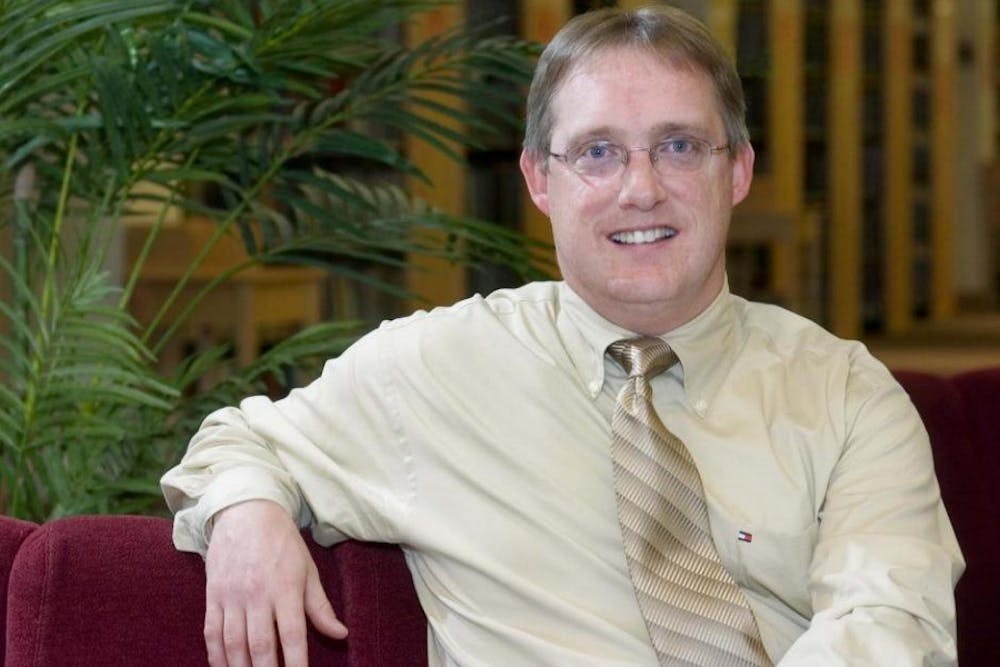Area democrats unhappy with election results
By Lauren Oliver, For The Miami Student
Democrats around the country were discouraged Nov. 4 when many of their candidates lost elections - including Miami University's Tom Poetter, a professor who ran for Congress against Republican Speaker of the House John Boehner.
Many of the races were close, but according to the United States Elections Project, just 36.4 percent of eligible Americans voted, and numbers across the state mirrored this as 36.2 percent of Ohioans cast their ballots.
On Miami's campus, many were cncerned with the fact Poetter did not campaign on campus, thus limiting students' awareness and interest in his campaign.
Poetter's response was fairly simple: it is against the law.
"As a state employee, you're not allowed to use your state position to advance your political campaign, which I never did," he said. "I can't just set up a rally."
Poetter said he was allowed to be invited to different schools and organizations, and he was. However, due to the short political season, and the fact that there are only eight weeks between the beginning of school and Election Day, it was very difficult to do sufficient campaigning within the university community.
In fact, only 38 percent (185,000 people) of general populous in Butler County showed up to vote - a significantly lower turnout than the 45 percent (210,000 people) in 2010.
Nevertheless, midterm elections usually produce low numbers nationwide, but the lack of voter turnout was more drastic for students, with many reporting they did not vote.
According to the Butler County Board of Elections, of the 4,546 people eligible to vote at Miami's Shriver Center, only 219 cast a ballot.
Charlie Meyer, Chairman of the College Republicans, said although some Miami students did vote, he believes there is a lot more work to be done.
"I think we're better than some campuses, but I think there's a long way to go for all the millennial generation," he said. "I don't think we vote nearly enough compared to the baby boomers and older generations. It's really sad because we're going to have to deal with a lot of the problems that we have to face in the future financially."
Poetter said people will go to the polls for certain reasons, as well as stay away for certain reasons, but it may be more difficult for students.
"Not all students are going to vote, whether it be absentee because they live far way or they're in transition with a new address," he said. "It's just really difficult."
Junior Ari Simone, who did not vote in the 2014 Midterm Election, believed the lack of student voters was due to insufficient knowledge about the issues.
"I think a lot of kids don't feel like voting in midterms is important because they either don't know who's running, or they don't think it applies to them," she said. "We live in on college campus, so things like taxes don't really apply to us yet."
Junior Lakia Kidd said voting should be made easier and more accessible to students. Although she was aware Oxford residents and off-campus students were able to vote at either Talawanda Middle School or Talawanda High School, she said she would have preferred a closer location.
"I don't understand why there was no station for off-campus voters," she said. "It would have been a lot easier had the voting been available to us in Shriver, as well."
Kidd, who did not vote this year either, said a main factor in her staying home was because she was not aware of the issues and felt it would be wrong to vote for something she was uneducated about.
However, similar to Meyer, senior Jake Harvey said although certain issues may not apply to students now, they should do research and think about the future.
"I just think students don't vote because of laziness and they don't realize that they can make a difference," he said. "However, Miami students would benefit from voting because their voice would be heard, and we will be paying taxes on our own before the next midterm."

